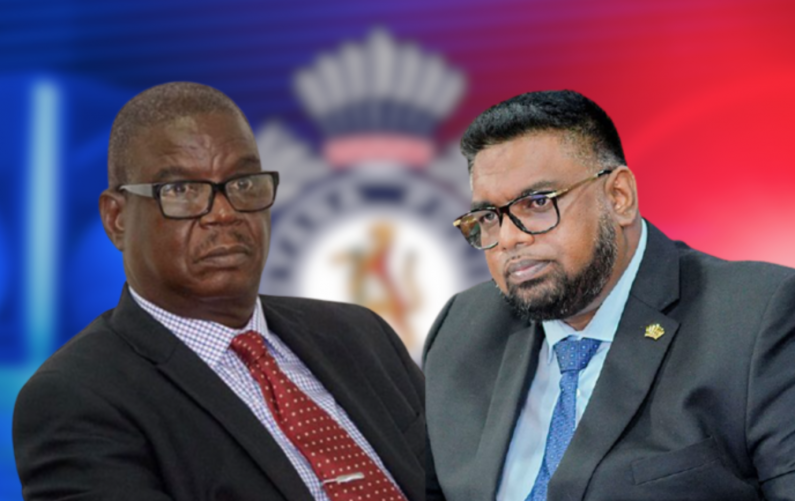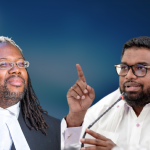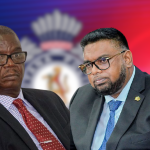
High Court Judge Gino Persaud this afternoon ruled that President Irfaan Ali’s suspension of the Chairman and members of the Police Service Commission in 2021 was unconstitutional and unlawful.
Retired Assistant Commissioner of Police Paul Slowe was the Chairman of the Police Service Commission at the time of the suspension and he was the one who moved to the Court against the President’s actions.
In ruling in favour of Slowe, Justice Persaud said that in the absence of a Judicial Service Commission and a Tribunal, the President had no authority to suspend the Chairman and other members of the Police Service Commission (PSC).
Justice Persaud said President Ali breached the Constitution when he failed to appoint a Tribunal on the advice of the Judicial Service Commission to address the issue of the removal of Mr. Slowe and his fellow Commissioners from the Police Service Commission.
“This failure by the President proves fatal as a referral to the tribunal is a condition precedent to the suspension of members. Therefore, the President had no authority on which to suspend either the Chairman or any other member of the Commission,” the High Court judge ruled.
In June 2021, President Ali suspended the then Chairman of the Police Service Commission, Paul Slowe and the other members, Michael Somersall, Claire Alexis Jarvis, Vesta Adams and Clinton Conway based on the advice of Prime Minister Mark Phillips.
In handing down the suspension, the President sought to activate the doctrine of necessity on the basis that, at the time, the Judicial Service Commission was not duly constituted, and therefore could not advise on the establishment of a Tribunal.
But Justice Persaud said the failure to constitute the Judicial Service Commission could not be used as a reason to activate the doctrine of necessity.
“It is my considered view that the failure to constitute the Judicial Service Commission cannot be relied upon to excuse the unconstitutional act of suspending these constitutional office holders. The failure to constitute the Judicial Service Commission is the President’s burden to bear,” Justice Persaud said.
The Judge noted that all members of the Judicial Service Commission are appointed by the President after meaningful consultations with the relevant constitutionally prescribed functionaries. Justice Persaud said there was no evidence to suggest that the President took steps to constitute the Judicial Service Commission.
“The failure to appoint a commission in my view does not meet the high threshold to invoke this seldomly utilized doctrine,” Justice Persaud, noting that the State did not convince the court that it was an extreme situation that warranted the utilization of the doctrine of necessity.
“There was no political upheaval, there was no instance of societal breakdown, there was no suspension of the Constitution,” he added.
The Attorney General Anil Nandlall, in defending the State, said the President was prompted to act in light of the charges that were pending against Mr Slowe and the Court action to which the Commissioners had joined. But the High Court Judge said Mr Slowe at the time was not found guilty of committing any crime, and as such, has the right to the presumption of innocence as set out in the Constitution.
“Mr Slowe has not been convicted of any charges. At the time when he was suspended, he was entitled to that presumption. The mere institution of criminal charges cannot amount to misbehaviour, except and until the person has been adjudged by the competent tribunal. Therefore, the act in reliance of the charges alone cannot be a basis to justify the President’s decision to suspend,” the Judge said.
The parties have agreed to make submissions in relation to costs.
Slowe was represented by Attorneys Selwyn Pieters and Dexter Todd

















You must be logged in to post a comment Login